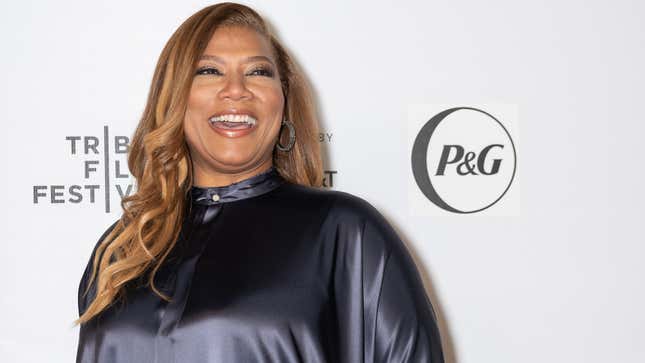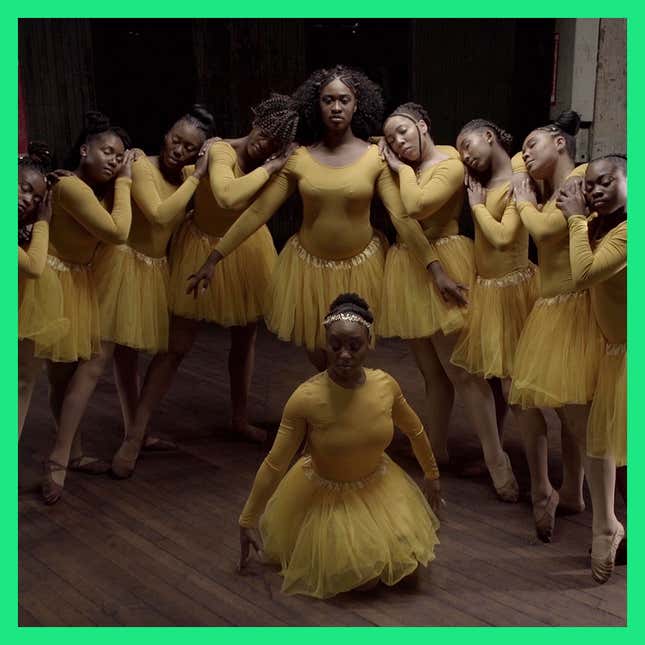
In a 90’s kind of world, we were glad to have our girls. That notion still rings true with a new program that includes the Queen, also known as Latifah. Latifah, Tribeca Studios and Marc Pritchard, Procter and Gamble’s chief brand officer, have partnered to bring the dreams of black women to reality.
That association has birthed The Queen Collective (TQC), a program that aims to accelerate gender and racial equality behind the camera by opening doors through mentoring, production support, and creating distribution opportunities for content created by the next generation of multicultural female directors.
When it comes to diversity, people don’t do their due diligence. Many talk about the concept of bringing more black and brown people into the room and claim they want to do something about it, but the aforementioned are actually putting action and money behind its words.
“I would be remiss if I did not reach back and help black women get where I am today,” Latifah told The Root during a roundtable discussion with Pritchard and the two TQC winners, B. Monét and Haley Elizabeth Anderson.
TQC’s inaugural films, Ballet After Dark, directed by B. Monét, and If There Is Light, directed by Haley Elizabeth Anderson, premiered this past week during the Tribeca Film Festival.
“Women of color rarely see themselves on screen, let alone behind the camera,” B. Monét said. Monét’s film tells the story of a young woman who found the strength to survive after an attack. She found the strength to continue living and used her past traumas to create an organization that helps others.
“We are often painted as victims and never seen as victors, and I wanted my piece to change that narrative,” Monét told The Root. With her film, she depicts black skin in a way that makes us shine like the sun-kissed children that we are. The piece shows the good, the bad and the in-between of survival. It reminds you that every road to recovery looks completely different, but triumph is achievable with support and the strength to live.

“During the difficult times, I think about my sister,” Monét told The Root, who says she uses her as her “driving force.” Monét says she wants to see more stories about diverse characters in the black community. “There should not be one Girls Trip or one Moonlight, and it’s not that we can’t do it, we just need someone to give us the chance.”
Monét attended Spelman College and she “loved, loved, loved” the experience. “I am thankful that I went to an HBCU because it gave me a strong support system that enriched my experience.”
Anderson’s piece, which also highlighted blackness and tells the story of 14-year-old Janiyah Blackmon, who is wrestling with her new life in New York City as her mom tries to move their family out of the shelter system and into a stable home. Anderson experienced homelessness as a child and knew to handle this particular instance with reverence and care. The film was a reminder of how powerful black mothers truly are. The mother in the film, Jakena Blackmon, says that she was nervous to share her story with the masses, but felt that it needed to be told.
“You never know who you might touch with your story,” Blackmon told The Root. Anderson shared that it was not an easy journey to complete her film, but knew that she was following her passion and that she would be where she needed to be at the right place and time.

These two talented black women used their craft to highlight various issues in our community, the highs, the lows, the good and the bad. They both served as an eye-opening experience to show you that you never truly know based on outward appearances what someone may be struggling with.
During this process, they learned the importance of being vocal and the value in not fearing confrontation. The journey has equipped them with tools that they say they’ll carry with them for the rest of their lives.
“My hope is that we create more female directors that end up giving jobs to more diverse crews and get their foot in the door and start to get recognized and hired for their work,” Latifah told The Root about her reasoning behind being a part of TQC.
“When you watch these two films, you will be moved to action,” Latifah added. “Watching these movies, I felt emotionally moved, inspired, and I felt grateful to have the permission to look into someone else’s life through their films and to appreciate someone else’s position, and it motivated me to want to do more.”
Latifah, no stranger to U.N.I.T.Y, wants to make sure that these women’s dreams happen and is determined to not have any doors closed in their faces. She reiterated the importance of our support as a community and said “we have a lot of buying power, and we don’t have to do business with companies that don’t support people of color.” Latifah ended by reminding a room filled with agape mouths that black people are the consumers and that our black dollars count.
Anything a black woman touches turns to gold. It’s a scientific fact. The world is made better because of their presence, and we all would be lost without them. TQC is making sure that our voices are not only heard but funded. And in a 2000’s world, we’re still glad we’ve got our girl, Queen La.



